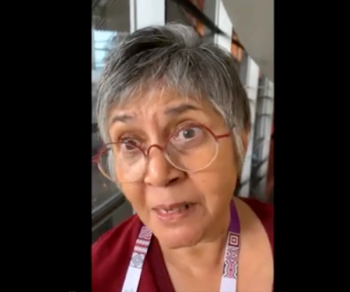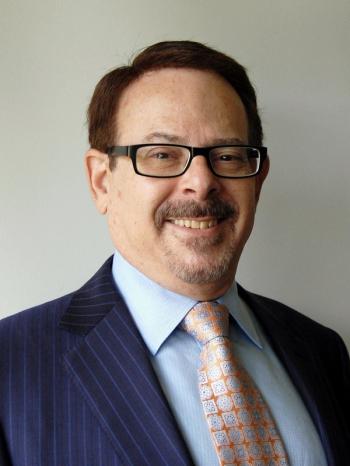
CVS Health reports Q2 earnings decline due to litigation charges but boost adjusted EPS guidance, highlighting transformation and growth in healthcare services.

CVS Health reports Q2 earnings decline due to litigation charges but boost adjusted EPS guidance, highlighting transformation and growth in healthcare services.

The Joint Commission revamps pediatric care standards, prioritizing children's unique healthcare needs for safer, more effective hospital experiences.


Medicare Advantage enrollment transforms post-acute care, impacting home health, hospice and skilled nursing services amid evolving value-based care challenges.

Rising Medicare exit rates among physicians, especially primary care, highlight growing dissatisfaction and administrative burdens, raising concerns for healthcare access.

Proposed Medicaid changes could lead to 1,500 excess deaths and $135 billion in economic losses annually, impacting healthcare and rural communities.


The vision research community rallies to protect the National Eye Institute from funding cuts, emphasizing its vital role in preventing blindness and advancing treatments.

Employers increasingly shift health benefit costs to workers in 2026, while prioritizing mental health and innovative affordability strategies.

BioMarin's Roctavian gene therapy shows long-term effectiveness in treating severe hemophilia A, reducing bleeding and improving quality of life for patients.

Replimune's RP1 treatment for advanced melanoma faces FDA rejection due to trial design issues, despite promising results from the IGNYTE trial.

Driven by expensive drugs, hospital stays and growing behavioral health needs, healthcare spending is expected to keep rising—encouraging insurers to tighten oversight and explore new ways to control costs.

Switching to extended half-life from standard half-life therapies for hemophilia enhances treatment adherence and reduces infusion frequency, despite initial cost increases.

Frequent flares in atopic dermatitis predict future disease severity, highlighting the need for improved treatment strategies, as found in a new study published in JAMA Dermatology.

Long-acting injectable PrEP may improve access, protection and adherence, especially for young people and pregnant women, according to Hasina Subedar, a senior technical advisor at South Africa’s National Department of Health, who spoke with editors at IAS 2025 in Kigali, Rwanda.

Mulugeta Gebregziabher, Ph.D., spoke with Managed Healthcare Executive ahead of his presentation at IAS 2025 in Kigali, Rwanda, about the risks posed by U.S. cuts to global HIV prevention funding.

At the IAS 2025 conference in Kigali, Rwanda, Banky Olatosi, M.P.H., M.S., Ph.D., of the University of South Carolina, shed light on how systemic racism and social determinants of health influence HIV diagnoses and care across U.S. regions.

According to experts at the IAS 2025 meeting in Kigali, Rwanda, AI revolutionizes HIV vaccine development by enhancing design, data analysis and clinical trials, especially in low-income regions, creating a faster progress.

Experts, such as Lloyd Mulenga, M.Sc., M.B., Ch.B., Ph.D., discuss long-acting injectable HIV PrEP's potential in Zambia, emphasizing community involvement and sustainable rollout amid funding challenges.

Alarice Marsh, M.P.H., a deputy director in the National Department of Health of South Africa and program lead of HIV testing services, spoke with MHE editors about her thoughts on the new recommendations for HIV and sexually transmitted diseases that were issued by the World Health Organization (WHO) today.

Leqselvi (deuruxolitinib) 8 mg tablets are approved for adults with severe alopecia areata, a disease that causes the immune system to attack hair follicles, leading to partial or complete hair loss on the scalp and body.

Kerendia was originally approved in July 2021 to reduce cardiovascular and kidney complications in patients with chronic kidney disease (CKD) associated with type 2 diabetes. This new approval extends its use to a broader patient population.

In this part three interview of a video series, Hari Prasad, CEO of Yosi Health, told Managed Healthcare Executive editors that cutting administrative burdens through digitized prior authorizations could improve patient outcomes and restore valuable time to physicians.

In this part two interview of a three-part video series, Hari Prasad, CEO of Yosi Health, said in an interview with MHE that AI can reduce administrative delays in prior authorization, but it must be paired with oversight to ensure patient safety.

In an interview with Managed Healthcare Executive, Yosi Health CEO Hari Prasad praised insurers' new voluntary pledge to simplify prior authorization, calling it a key step toward faster care and reduced administrative burdens for providers and patients.

A new study found that commercial insurers pay hospitals more than twice what Medicare does, with prices varying depending on local market factors such as hospital concentration and insurer competition.

During a KFF media call, experts raised alarms that new Medicaid rules in the federal budget law could lead to coverage losses, higher costs and added pressure on states and hospitals.

Michael Abrams, M.A., managing partner at Numerof & Associates, warned that without clear eligibility rules, the new $50 billion rural hospital relief fund could end up helping the wrong providers instead of the rural hospitals most in need.

Managed Healthcare Executive spoke with Michael Abrams, M.A., managing partner at Numerof & Associates, to discuss the newly passed $50 billion rural hospital relief fund and what it could mean for rural health systems. In a conversation that took place just before the legislation passed in the Senate on July 1, Abrams expressed cautious support for the fund while warning that without proper structure, it could fall short of meaningful change.

In an interview with Managed Healthcare Executive ahead of the Senate and House vote and under President Trump's official seal of approval on July 4, Michael Abrams, M.A., warned that without clear eligibility rules, the newly approved $50 billion rural hospital relief fund could be exploited by non-rural providers and fail to support the facilities it was meant to save.